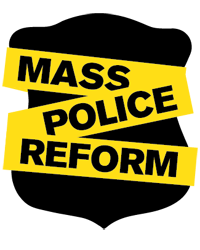Black Boston police officers facing higher discipline rates than white counterparts

The Boston Police Department has upheld complaints against black officers and punished them disproportionately more than their white counterparts, a Herald review found.
Black officers make up just 23 percent of the police force, and whites about two-thirds, the review found. But over the past two years an equal number of black and white officers — 14 of each — have faced suspensions, indicating blacks are being found in the wrong and disciplined at a dramatically higher rate.
Related: BPD diversity remains out of sync with city
“It is unfair,” said Larry Ellison of the Massachusetts Association of Minority Law Enforcement Officers. “There are also fewer complaints against black officers, but the department has found a way to punish an equal number or more year after year. We have been dealing with this as far back as 1989. It just doesn’t get any better.”
Behind those 28 suspensions in 2013 and 2014 were a total of 1,256 allegations of wrongdoing against the police force, the review found. In some cases there were multiple allegations against the same officer for the same incident. White officers were the target of 589 allegations, and blacks 343, BPD data show.
Of the allegations against whites, 109 charges, or about 18.5 percent, were sustained and resulted in punishment against 14 officers.
Of the allegations against blacks, 83 charges, or 24 percent, were sustained and resulted in punishment against 14 officers, the review found.
However, the average punishment handed down against five white officers suspended in 2014 was 25.6 days, the data show: that’s more severe than the average 19.1 days of suspension given to the eight black officers who were suspended that year.
Police Commissioner William B. Evans, citing the equal number of black and white officers punished, insisted that his department is fair. He also noted that the average suspension for white officers was longer than for blacks.
“I think my record stands for itself there. I don’t look at race at all,” Evans said. “I look at fairness, I look at consistency. Race is never a factor. In this line of work I work with my legal team (and ask), what did someone who did a similar offense get last time? It has to be fair, it has to be impartial and it has to be consistent.”
Ellison noted the eight black officers punished last year do not include two who resigned under threat of criminal charges and another who was fired.
Evans countered: “I heard the allegations here. But I don’t think you’ll meet a more fair guy. I’ve been on this job for 34 years, I think my record of being fair and impartial stands for itself.”
In 2013, the last year under then-police Commissioner Edward F. Davis, nine white officers were suspended for an average of 18.3 days each, while six blacks were punished for an average of 11 days each.
But Davis said when it comes to measuring the department’s racial sensitivity in disciplining officers, the numbers alone don’t tell the whole story. “You can look at it on an incident-to-incident basis. If someone is charged with lying, if you have similar charges you can make that comparison. That’s valid,” he said. “But to sum them all up and divide, I don’t think that’s accurate.”
